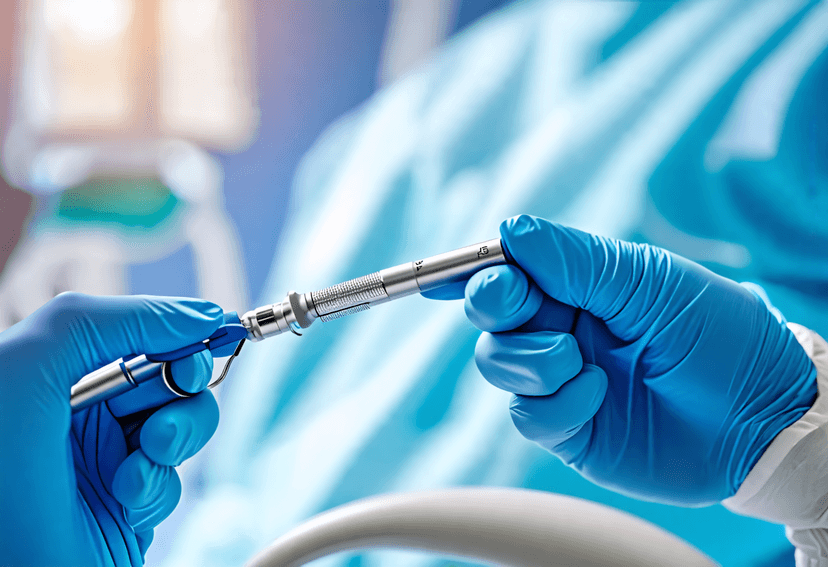
Dos and Don'ts: Lifestyle Choices Affecting Vaginal Cancer Risk
20 Nov, 2023
 Healthtrip Team
Healthtrip TeamVaginal cancer is a serious condition that can affect women. While there are several risk factors that contribute to the development of vaginal cancer, some lifestyle choices can significantly influence your risk. In this blog, we will explore the dos and don'ts of lifestyle choices that can impact your vulnerability to vaginal cancer.
Most popular procedures in India
The Dos:
1. Regular Screening and Check-ups: Schedule annual gynecological check-ups and screenings, including Pap smears and HPV tests. Pap smears are crucial for detecting abnormal cervical cells, while HPV tests identify the presence of high-risk HPV strains linked to cancer.Early detection is key to successful treatment.
Wellness Treatments
Give yourself the time to relax
Lowest Prices Guaranteed!

Lowest Prices Guaranteed!
2. Safe Sex Practices: Practice safe sex by consistently using condoms. Condoms provide a barrier against STIs, including HPV, which is the leading cause of vaginal cancer. Open and honest communication with your partner about sexual health is also important.
3. HPV Vaccination: Discuss HPV vaccination with your healthcare provider. The HPV vaccine is recommended for adolescents but can also benefit adults up to age 45. It protects against several high-risk HPV strains, reducing your risk of contracting the virus.
4. Healthy Diet: Adopt a well-balanced diet rich in fruits, vegetables, whole grains, and lean proteins. These foods provide essential nutrients, antioxidants, and dietary fiber that support a healthy immune system and help prevent inflammation, which is associated with cancer development.
5. Regular Exercise: Aim for at least 150 minutes of moderate-intensity aerobic exercise or 75 minutes of vigorous-intensity aerobic exercise each week. Regular physical activity helps maintain a healthy body weight and can reduce the risk of obesity, a known risk factor for vaginal cancer.
6. Smoking Cessation: If you smoke, seek professional help and support to quit smoking. Smoking exposes your reproductive organs to harmful chemicals, increasing the likelihood of cancer. Quitting smoking is one of the most impactful steps you can take to reduce your risk.
Explore Further: Vaginal Cancer Risk and Prevention Strategies: What You Need to Know (healthtrip.com)
The Don'ts:
1. Tobacco Use: Avoid all forms of tobacco, including cigarettes, cigars, and smokeless tobacco products. The carcinogens in tobacco can damage the cells of the cervix and vagina, significantly increasing your vulnerability to vaginal cancer.
2. Excessive Alcohol Consumption: Limit alcohol intake and avoid heavy drinking. Excessive alcohol consumption is linked to a higher risk of vaginal cancer. If you choose to consume alcohol, do so in moderation (up to one drink per day for women).
3. High-Risk Sexual Behavior: Engage in high-risk sexual behaviors, such as having multiple sexual partners without using protection. Such behaviors can increase your chances of contracting STIs, including HPV, which is a major risk factor for vaginal cancer.
4. Ignoring Symptoms: Disregard any unusual symptoms or changes in your vaginal health. Persistent symptoms such as vaginal bleeding, discharge, pain, or itching should not be ignored. These can be early warning signs of a problem that needs prompt medical evaluation.
5. Poor Hygiene Practices: Neglect proper vaginal hygiene. Avoid using harsh soaps, douches, or scented products in the vaginal area, as these can disrupt the natural pH balance and increase the risk of infections that may contribute to cancer development. Instead, clean the area gently with mild, unscented soap and water.
6. Delaying Pap Smears and HPV Testing: Postpone or skip recommended Pap smears and HPV tests. These screenings are crucial for detecting abnormal changes in the cervix and vagina that could lead to cancer. Follow your healthcare provider's guidance for regular screenings based on your age and medical history.
7. Ignoring Family History: Overlook your family history of cancer. If you have close relatives who have had vaginal or other gynecological cancers, inform your healthcare provider. Genetic factors can play a role in cancer risk, and they may recommend additional screenings or preventive measures based on your family history.
8. Neglecting Your Overall Health: Disregard your general well-being. Chronic health conditions, such as diabetes or autoimmune disorders, and a weakened immune system can increase your vulnerability to vaginal cancer. Properly manage and treat underlying health issues to support your body's ability to fight cancer.
Vaginal cancer is a relatively rare but serious condition that can affect women. By following these detailed dos and don'ts, you can proactively reduce your risk of developing vaginal cancer. Regular screenings, safe sexual practices, vaccination against HPV, a balanced diet, and a focus on overall health are crucial components of lowering your vulnerability. Early detection and prevention are key to better outcomes, so prioritize your health and consult with a healthcare professional for personalized guidance. Your well-being deserves your attention and care.
Related Blogs

Elevate Your Health and Wellness with Enhance by Mediclinic
Discover how our team of experts can help you achieve

Transform Your Life with Lotus Wellness and Rehabilitation
Experience the transformative power of wellness and rehabilitation at Lotus

Birthright: Empowering Women's Health and Wellness
Discover comprehensive healthcare services for women at Birthright, a renowned

The Importance of Early Detection in Sarcoma Cancer
Discover the benefits of early detection in sarcoma cancer treatment

Laparoscopic Hysteroscopy: A Minimally Invasive Diagnostic Tool
Explore the benefits of laparoscopic hysteroscopy, a minimally invasive diagnostic

Laparoscopic Hysterectomy: A New Era in Women's Health
Explore the benefits of laparoscopic hysterectomy, a minimally invasive surgical










